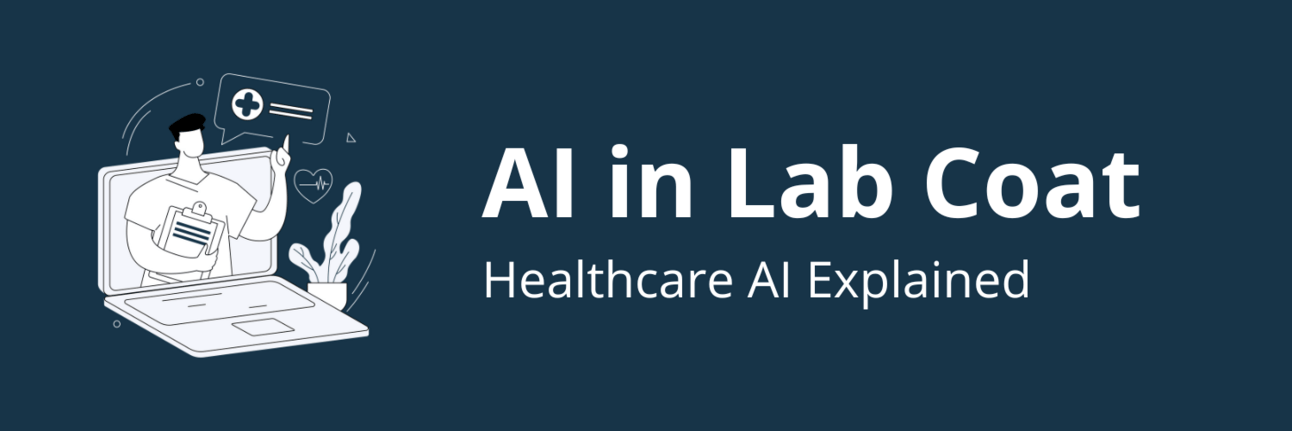
Happy Friday! It’s August 15th.
Another week, still tweaking. I’m experimenting with format and focus, so if there’s something you want me to bring back (or something new to try) hit reply and tell me!
Oh, and this week’s standout? NASA and Google are building an AI “doctor” for astronauts headed to the Moon, Mars, and beyond. Because when you’re millions of miles from Earth, waiting on a Zoom call with your physician isn’t exactly an option... Link’s in the new section below.
Our picks for the week:
Featured Research: AI Detects Deadly Food Toxins Fast
Product Pipeline: First FDA-Cleared AI Prostate Test
Read Time: 3 minutes
FEATURED RESEARCH
Real-Time AI Screening Could Save Millions from Foodborne Illness

Researchers from the University of South Australia, working with teams in Canada and India, have found that AI-powered hyperspectral imaging (HSI) can detect contaminated food before it hits the shelves.
HSI is a technology that captures images across dozens or hundreds of wavelengths, far beyond what we can see with our eyes. Each material has its own unique “spectral fingerprint”, so mycotoxins, a dangerous compound from fungi that cause cancer, immune suppression, and hormone disorders, can be detected quickly and non-invasively.
This could help the 600 million people and the 4.2 million deaths a year caused by foodborne contamination.
A Growing Global Issue: 25% of the world’s crops are contaminated by mycotoxin-producing fungi, according to the UN Food and Agriculture Organization.
Traditional methods are slow and expensive, so they are not practical for real-time screening. That leaves a big gap in the food safety chain, especially for cereals and nuts, which are staple foods and major export commodities for many countries.
How It Works: HSI captures detailed spectral “fingerprints” of food and detects subtle changes caused by toxins.
When paired with machine learning, it can classify contaminated items in real-time without damaging them. In over 80 studies on wheat, corn, barley, oats, almonds, peanuts and pistachios, HSI outperformed conventional lab tests, especially for aflatoxin B1, one of the most potent natural carcinogens.
What’s Next: The team is refining the system with deep learning to improve accuracy and adaptability. With further development, HSI could be deployed on processing lines or in handheld devices to cut health risks and economic losses by only allowing safe food to reach the market.
For more details: Full Article
Brain Booster
One of the most poisonous mycotoxins, aflatoxin, often hides in which food?
Select the right answer! (See explanation below and source)
What Caught My Eye
PRODUCT PIPELINE
ArteraAI Prostate Becomes First FDA-Cleared AI Software for Predicting Cancer Outcomes
Artera got FDA approval for its AI prostate cancer software, ArteraAI Prostate. This De Novo authorization is the FDA’s first and only approval for AI-powered software that predicts long-term outcomes for non-metastatic prostate cancer patients.
The software is now a “Software as a Medical Device” and works at the point of diagnosis in qualified pathology labs, so doctors and patients can get prognostic insights sooner without having to wait for separate lab workflows.
This helps clinicians choose the right treatment path faster and with more confidence.
This approval also sets a new product code for future AI-based pathology tools and includes a “Predetermined Change Control Plan” so Artera can add more scanners without going through another full FDA review.
Every time a product like this gets cleared, it moves the bar for what’s considered standard of care in cancer.
For more details: Full Article
Top Funded Startups

Byte-Sized Break
📢 Other Happenings in Healthcare AI
NASA and Google are co-developing the AI-powered Crew Medical Officer Digital Assistant (CMO-DA) to diagnose and treat astronauts during deep-space missions, with early trials showing up to 88% diagnostic accuracy for certain conditions. [Link]
HITLAB launched the Center for AI Testing and Evidence (CAITE), chaired by Medidata’s Chrysanthi Dori, to set global standards and provide science-backed validation for ethical AI use in healthcare and life sciences. [Link]
A Lancet study found that regular AI use in colonoscopies led to a 20% drop in adenoma detection by experienced endoscopists when AI was not used, raising concerns about skill erosion from overreliance on AI. [Link]
Have a Great Weekend!

❤️ Help us create something you'll love—tell us what matters!
💬 We read all of your replies, comments, and questions.
👉 See you all next week! - Bauris
Trivia Answer: B) Peanuts
Aflatoxin, made by certain molds, can contaminate peanuts, especially when stored warm and damp, and can cause serious liver damage. [Source]


